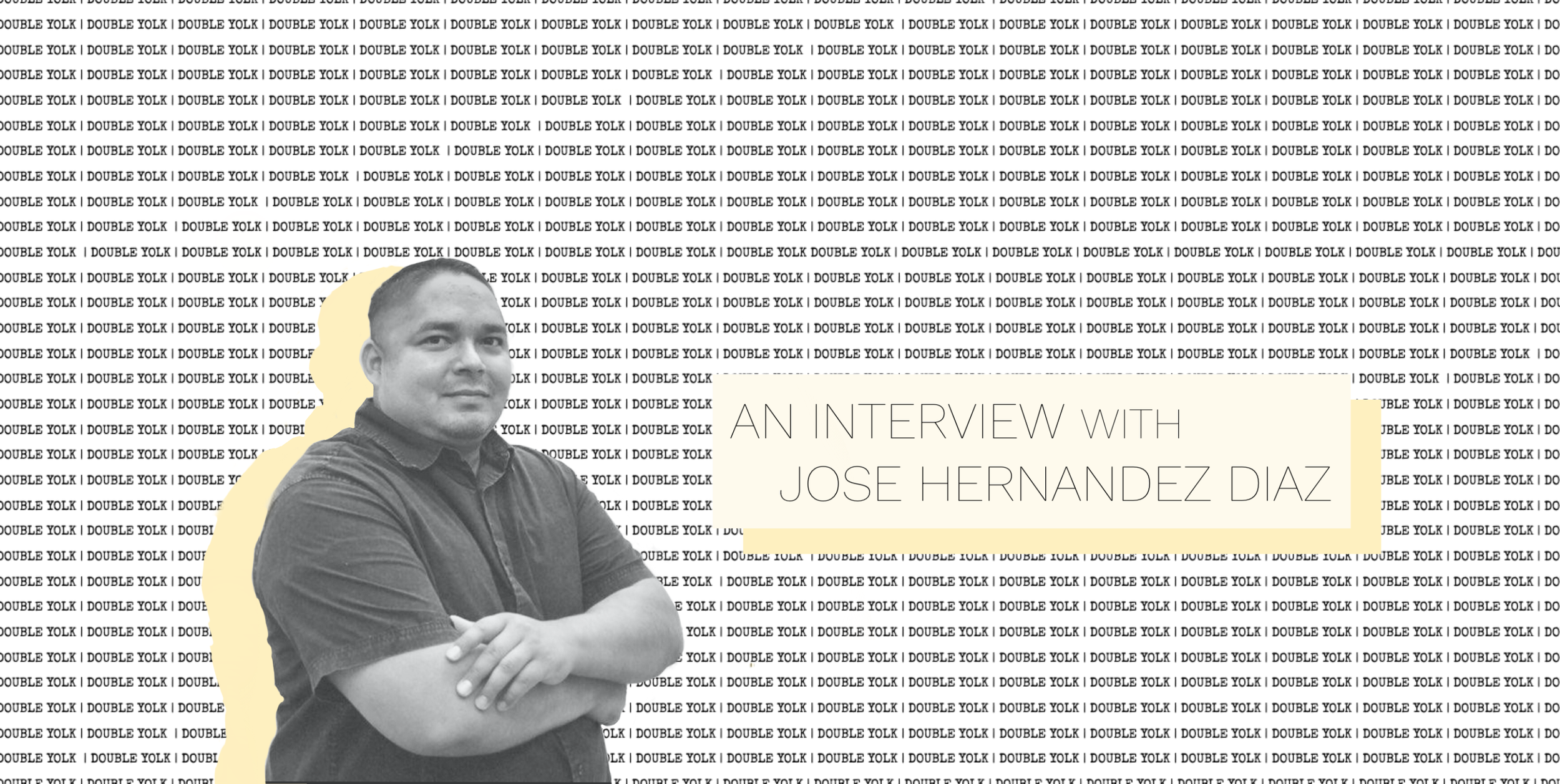
JOSE HERNANDEZ DIAZ is a 2017 NEA Poetry Fellow. He is the author of The Fire Eater (Texas Review Press, 2020). His work appears in The American Poetry Review, Boulevard, Cincinnati Review, The Delinquent (UK), Georgia Review, Huizache, Iowa Review, The Moth (Ireland), The Nation, Poetry, Red Ogre Review (UK), The Southern Review, The Yale Review, and in The Best American Nonrequired Reading 2011. He has a forthcoming full collection, "Bad Mexican, Bad American," with Acre Books in 2024. He teaches, writes, and edits in Southeast Los Angeles County.
CAN YOU OFFER A DEFINITION OF THE ROLE FANTASY HAS TAKEN IN YOUR POETIC WORK? WHAT LED YOU TO FIRST EXPLORE THE SURREAL THROUGH POETRY, AND WHAT KEEPS YOU EXPLORING?
I think, to put it simply, fantasy or magical realism or surrealism is a way to escape reality, the otherwise harsh or indifferent world. Surreal writing forces us to use our imagination and create worlds and dig deep to find unusual scenarios, imagery, settings, and dialogues. Reading James Tate’s prose poetry is what initially led me to explore surrealism. He had a stripped-down, humorous, engaging approach to surrealism and it taught me that poetry can be fun, unusual, entertaining, and so much more.
IN “MY BATTLE WITH THE ENGLISH DRAGON”, YOU WRITE, “I’M NOT AN ENGLISHMAN. I’M A MEXICAN FROM SOUTHERN CALIFORNIA.” HOW DO YOU FIND YOUR IDENTITY INFLUENCES YOUR POEMS?
I mention that line about being Mexican American and not an Englishman because this specific poem references an English dragon, so I’m just pointing out that I’m not English. I like to juxtapose and entangle otherwise anachronistic events and imagery at times. As far as how identity influences my poetry: it varies. When I write personal poems in linear verse about my real life I am often talking about my experiences as a Brown male, first gen Mexican American from southern California. However, if I’m writing a third person prose poem about a man in a forest, for example, eating berries, perhaps that info is not as relevant. It varies with my often-dual styles of linear verse about my real life, and prose poetry about the absurd and surreal. Sometimes, even, I’ll write prose poems that are surreal but have realistic imagery or settings reflecting my Mexican American experience. I like to mix things up at times.
YOU, OF COURSE, TEACH CREATIVE WRITING FOR VARIOUS ORGANIZATIONS. HOW DO YOU APPROACH THE TASK OF HELPING YOUR STUDENTS IMPROVE AND EXPAND THEIR CREATIVE BOUNDARIES?
I like to be humble and open and encouraging. I don’t believe there are bad poems or that poems deserve grades. Most of my work so far has centered on close readings of established masters and generating my own creative writing prompts for students so they can improvise, revise, submit, and hopefully shine or hold onto the work – whatever they like.
HOW HAS YOUR RACIAL AND CULTURAL IDENTITY IMPACTED YOUR WRITING JOURNEY?
It varies, there are always folks who support my work and folks who don’t like it. I started writing more as a hermit trying to find my own unique voice as opposed to being more of a social writer. Nowadays, I feel like it is common for poets to be expected to be saints or martyrs. I’m not interested in that. I strive for a normal, family-oriented life. My cultural upbringing as a first gen, low-income Mexican American in SoCal will always be part of my work. I strive to celebrate my culture and speak out against those who try to disrespect my people. However, I do not limit myself or pigeonhole my writing. I write about various topics, subjects, and don’t apologize for it.
“LIZARD HEAD” DESCRIBES, IN ONE SENSE, BOTH THE STRUGGLES AND BENEFITS OF BEING A HALF-REPTILIAN HUMAN. ARE THERE ANY TIMES WHEN, AS A POET, YOU’VE FELT LIKE SOMETHING DIFFERENT”?
Yes, I tend to see my work as subversive or avant-garde but with a universal appeal not as obscure as some of my contemporaries who dabble in the underground.
WHAT DOES YOUR WRITING PROCESS LOOK LIKE, FROM BLANK PAPER (OR DOCUMENT) TO FINAL DRAFT?
I tend to write a first draft in about 5-10 minutes. Then I’ll edit at some point for another 15-30 minutes. At this point, most of my poems are ready, only needing maybe a tiny edit here or there. Then I’ll focus on submitting. Lately, I’ve been writing to my own prompts, which I create for generative workshops.
YOUR POEMS OFTEN USE THE THIRD PERSON TO NARRATE A RATHER SURREAL STORY, SUCH AS IN “THE GRANDFATHER CLOCK”. DO YOU SEE THESE POEMS AS PERSONAL NARRATIVES? FANTASTICAL STORIES? BOTH?
Some are either completely fantastical, a mixture of fantastical and real, or just real. It varies.
HOW DID YOU COME TO POETRY? TELL US THE STORY OF YOUR BEGINNING WITH POETRY.
Growing up, I listened to a lot of rock and roll and underground hip hop like Rage Against the Machine, MF DOOM, The Get Up Kids. I wanted to be a musician. After I graduated from UC Berkeley with an English degree, I didn’t know what I wanted to do. I never had a Mexican American teacher growing up, much less a male Latino teacher. I was intimidated by teaching. So, I frequented the library and discovered contemporary poetry. Soon, I was writing and submitting and getting published. I was hooked.
FINALLY, DO YOU HAVE ANY ADVICE FOR YOUNG BIPOC WRITERS LOOKING TO INITIATE WRITING JOURNEYS OF THEIR OWN?
Read as much as you can. Edit as much as you can. Submit as much as you can. Be nice but don’t take anything from anyone. Show love, give love, but don’t chase anyone or anything that doesn’t truly appreciate you. Patience is key but hard to achieve. Seek mentors. Learn from them. Then become a mentor to other BIPOC writers.
